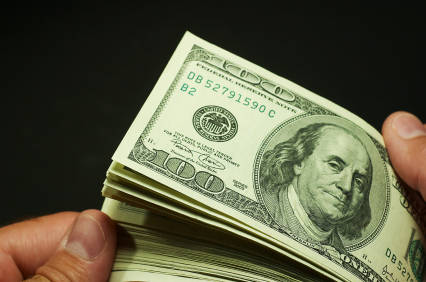Q: I have a question from someone who wanted to know about essentially the definition of paying yourself first.
She wrote me saying, ‘… there’s never been an accurate definition. Does it mean that it that you should pay yourself first the money that’s going into your retirement, into a emergency fund, or should you put it aside for a life event or just simply walk around with cash in your pocket?”
A: It never actually occurred to me that somebody would be confused or would not quite get the definition of pay yourself first. So, I think this is actually a very good question.
Here is my definition of paying yourself first. It means essentially that you are going to set aside money month after month, a specifically designated amount of savings for any purpose or goal.
So in other words, most of us know about setting aside money for the rent or the mortgage. We know of course about having money to pay those credit card bills or the car loans or perhaps our kids’ tuition bills. But when you pay yourself first, you’re going to say, “every single month I commit, five percent of my earnings, three percent of my earnings, 10 percent of my earnings;” whatever it is that you can afford to spare toward savings.
Now, this questioner wanted to know whether or not it should be put into an emergency fund, whether it’s for a specific life event, whether it’s for retirement or some other purpose?
In my view, a retirement savings account is something separate from the definition of paying yourself first. Obviously, retirement is for most people years off into the future. For some of us it might be decades away. Others might be five years, 10 years away. But the idea about paying yourself first is having some savings to be able to deal with things that might come up in terms of emergencies. So yes, the emergency fund would be appropriate.
The life events might be unexpected things that happened. I’ve written in the past about the difference between having an emergency cash cushion and having other kinds of savings funds. And there are some differences in terms of the scope of the fund, the length of the fund, how long it should last you and so forth. And I would encourage you to look at some of those details on https://askthemoneycoach.com.
But in essence the short answer is, pay yourself first means, set aside month after month, a pre-determined amount, a specific dollar amount, or a specific percentage of your income. Pay yourself first. Set that money aside before you pay all the other things that have to be paid, before you make the payments to your creditors or to others.
You are just as important as VISA or MasterCard, so you should not put yourself on the payments scale below those creditors.
FAQ
What does it mean to “pay yourself first”?
A: Paying yourself first means setting aside a predetermined amount or percentage of your income every month before you use that money for any other expenses. It’s a commitment to prioritize your savings goals before paying bills or other financial obligations. To effectively achieve your financial goals, you must strike the right balance between meeting your immediate expenses and deciding on “pay yourself first how much” to allocate for savings each month.









Comments are closed.